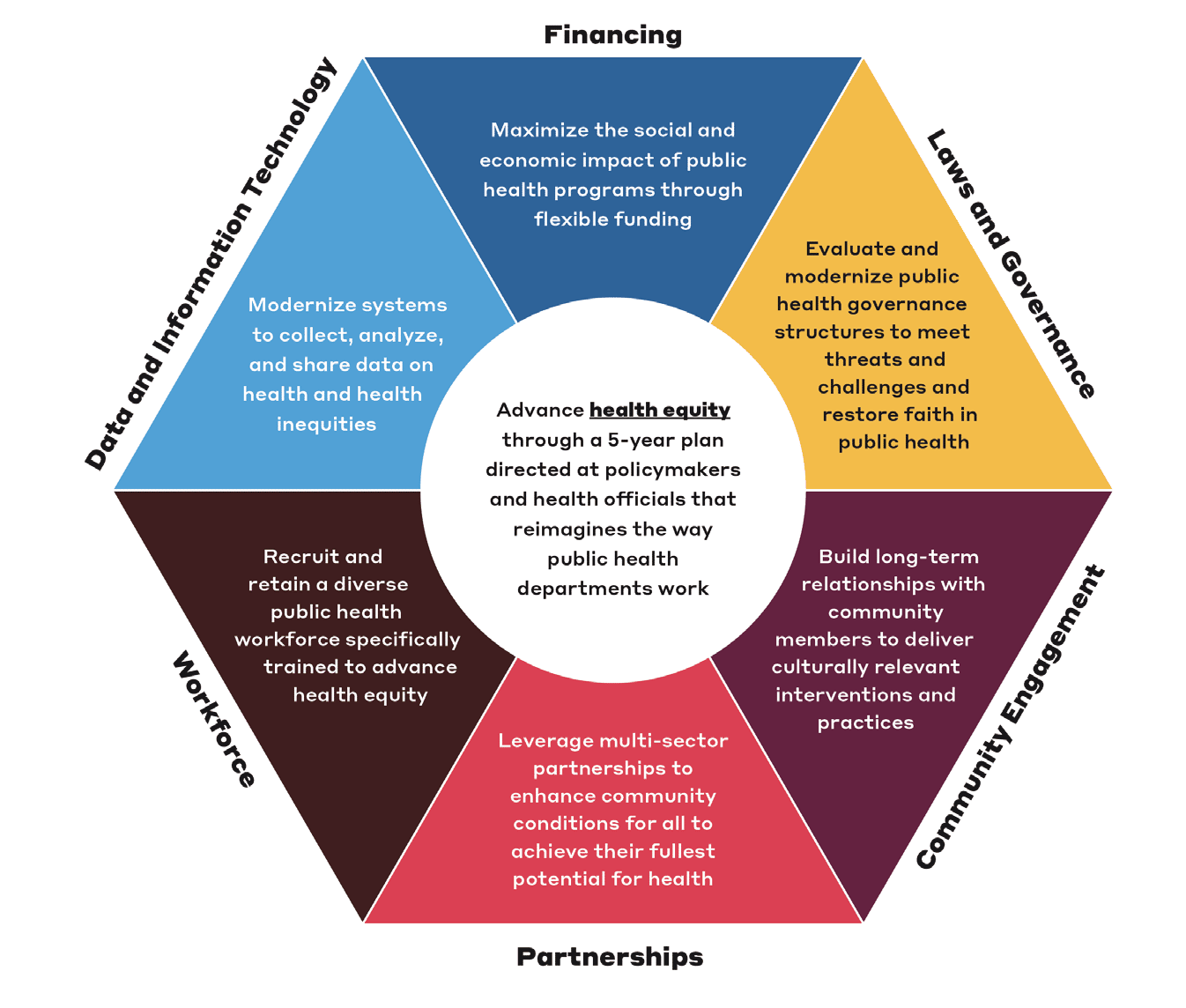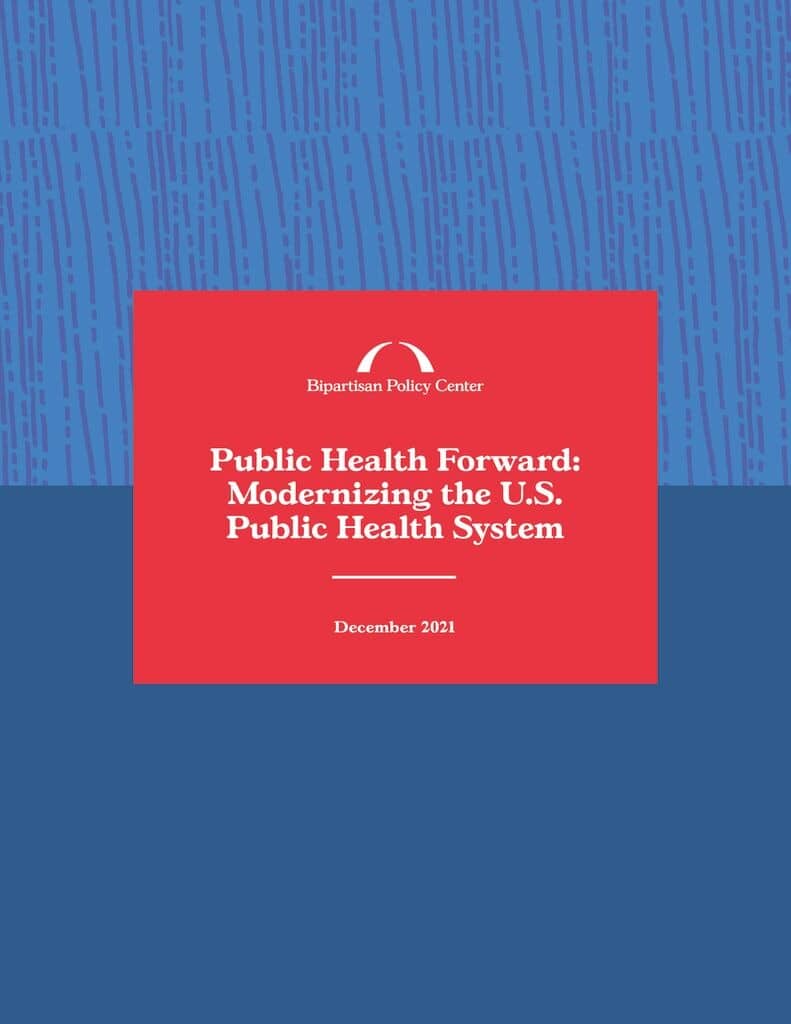The de Beaumont Foundation has joined the Bipartisan Policy Center and eight leading public health organizations to release a five-year roadmap for public health. Download Public Health Forward: Modernizing the U.S. Public Health System.
The devastating human and economic toll of the COVID-19 pandemic has shed a harsh light on an American public health system in need of transformation. “We are facing the consequences of a badly underfunded and understaffed public health workforce,” said Brian C. Castrucci, president and CEO of the de Beaumont Foundation. “We need to set a new course for public health and rectify decades of under investment.”
The Public Health Forward report offers detailed recommendations for both policymakers and public health leaders, shaped by a bipartisan task force of current and former governors, mayors, elected representatives, nonprofit, public health leaders, and health care executives.
“America’s safety, security and economic prosperity depend on a strong public health system,” Dr. Castrucci said. “This pandemic has exacerbated our nation’s systemic disparities in health care access, quality, and outcomes. It’s time to chart a new course for health equity for all Americans – and this new roadmap can help lead the way.”
The report outlines the critical investments needed to modernize America’s public health system to respond effectively to the most pressing public health challenges, including pervasive health inequities, the threat of future pandemics, and the rise in diseases such as mental illness, substance abuse, and obesity. Key recommendations to policymakers and public health departments include:
- Financing: Provide flexible funding and maximize existing assets to support public health services and capabilities and evaluate the social and economic impact of public health programs and strategies.
- Data and Information Technology: Strengthen the collection of prompt and actionable public health data and invest in data sharing between public health departments and health care entities.
- Workforce: Invest in the recruitment and retention of a diverse and inclusive governmental public health workforce. Improve hiring and promotion policies and processes to ensure high-quality public health services.
- Public Health Laws and Governance: Review, evaluate, and modernize public health governance structures and statutory responsibilities. Support and clearly communicate the roles of public health departments to the public.
- Partnerships: Incentivize partnerships between public health departments and other sectors and stakeholders. Establish a dedicated body charged with routinely monitoring, assessing, and influencing the implications for health in all government sector policy discussions.
- Community Engagement: Invest in long-term partnership development with community-based organizations and residents. Invest in increasing community organization capacity and provide resources to support collaboration with public health departments.

Public Health Forward was produced by Bipartisan Policy Center staff in collaboration with members of the Public Health Forward coalition: the Association of State and Territorial Health Officials, the Big Cities Health Coalition, the CDC Foundation, the de Beaumont Foundation, the Kresge Foundation, the National Association of County and City Health Officials, Pew Charitable Trusts, the Public Health Accreditation Board, and the Sunflower Foundation.
Download the full report: Public Health Forward: Modernizing the U.S. Public Health System.





